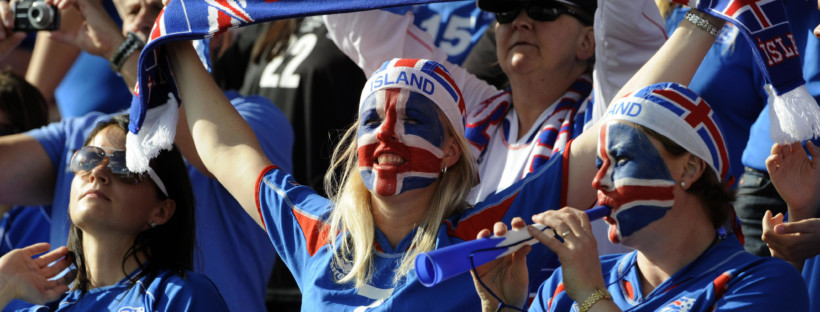Lessons from Iceland, the World’s Most Women-Empowering Nation

As we celebrate International Women’s Day, I find myself thinking about role models who inspire gender equity and encourage political voice for young women. Among these is Halla Tómasdóttir, an entrepreneur, change catalyst, founding member of Reykjavík University, and runner-up in Iceland’s 2016 presidential election. She is a visionary leader who advocates for women empowerment as a key lever in driving economic growth, educating future generations, doing good business, and building prosperous societies.
As Tómasdóttir explained during her presidential campaign, “the world would be a better, safer, more sustainable place if we could infuse finance, business, and politics with more gender balance; and it’s easier to change things from the inside.” Tómasdóttir was the first female CEO of the Iceland Chamber of Commerce and later founded Auður Capital, an investment firm that focused on incorporating “feminine values” into finance.
The world’s first democratically elected female president, Vigdís Finnbogadóttir, led Iceland for four terms from 1980 to 1996. Today, Iceland is arguably the most progressive nation in the world when it comes to women’s empowerment. Like a generation of Icelandic women who were inspired by Finnbogadóttir’s election, Tómasdóttir was acutely aware that, win or lose, there was great value in the example of running for political office.
“What we see, we can be,” Tómasdóttir said. “It matters that women run.”
For the past nine years, Iceland has been the most gender-equal country topping the World Economic Forum’s gender gap index (compared to the U.S. at #49). Out of the 144 countries included in the index, Iceland continually ranks first in political empowerment among women and for closing the gender income gap, and boasts corporate quotas ensuring women currently hold 40% of the board seats of companies with a staff of more than 50. Women also hold 48% of the country’s parliamentary seats. The Economist named Iceland the world’s best place for working women, based on combined data on higher education, labor-force participation, pay, child-care costs, maternity and paternity rights, and representation in senior jobs.
In celebration of the 100th anniversary of women’s right to vote in Iceland, Tómasdóttir founded and chaired “WE 2015: A Global Dialogue on Closing the Gender Gap.” Just two years later, Iceland celebrated International Women’s Day by becoming the first country in the world to require that businesses prove they offer equal pay to their employees. Women in Iceland currently earn 18% less on average than their male counterparts, but the government has pledged to close the gender pay gap by 2022. In comparison, the American Association of University Women predicted in 2016 that the gender pay gap in the U.S. will not close for more than 100 years.
NCGS is grateful to its strategic partner, the Margret Pála Schools, for sponsoring Halla Tómasdóttir as a keynote speaker for the Global Forum II. Join us June 18-20 in Washington, DC, for the Global Forum on Girls’ Education® II to exchange best practices for educating and empowering girls, including lessons from our Icelandic colleagues about how to advance gender equity, promote political voice, and develop compassionate leaders.
Megan Murphy, Executive Director, National Coalition of Girls’ Schools
Related tags: Developing Confident Girls, Developing Girls as Leaders, Developing Voice, Equal Pay, Gender Equality, Gender Parity, Gender Pay Gap, Global Forum on Girls' Education, Halla Tómasdóttir, Iceland, Leadership, Political Voice, Role Models, Women in Politics